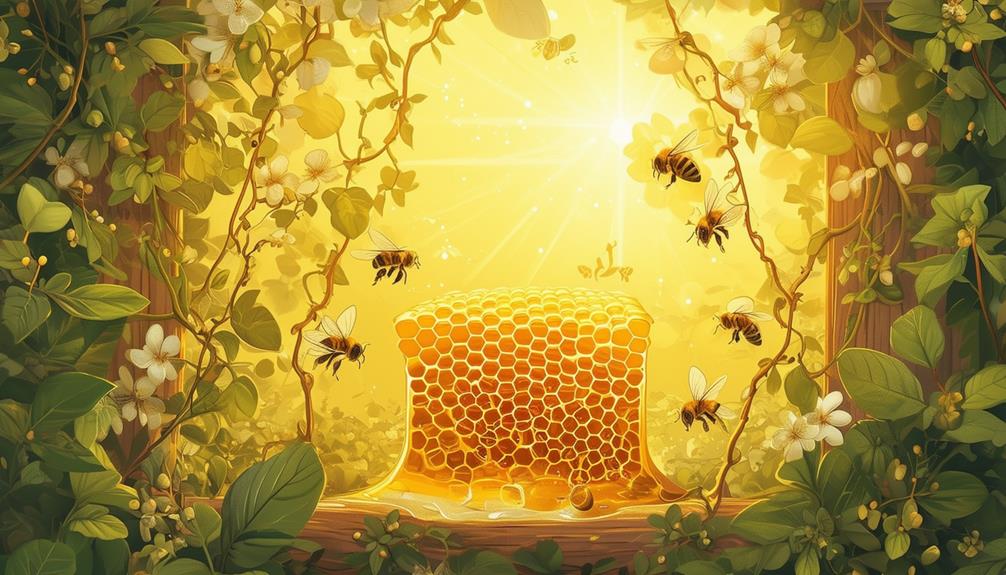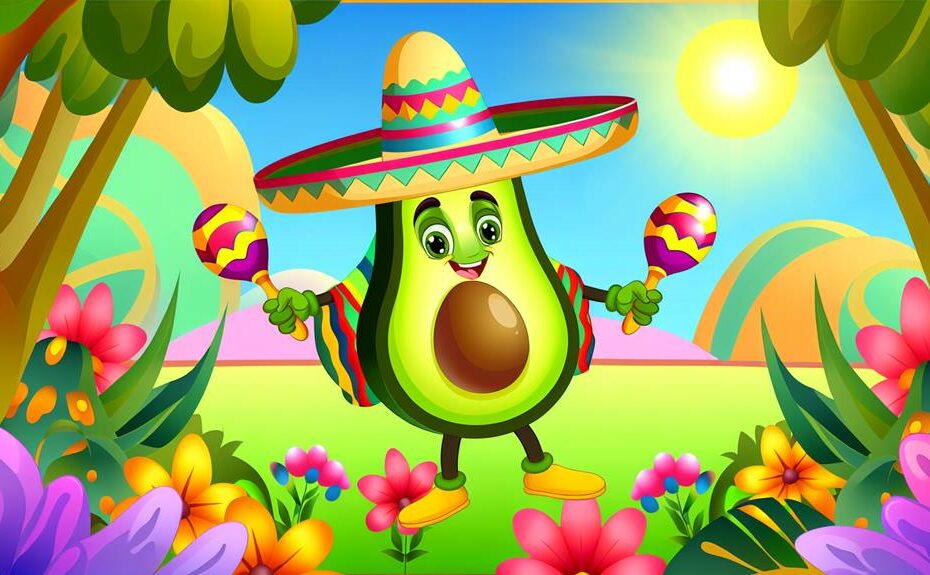You're likely familiar with the buzz around veganism, but have you paused to ponder the far-reaching benefits of a plant-based lifestyle? By opting for vegan milk alternatives and plant-based protein sources, you're not only supporting your own health but also contributing to a more sustainable future. But that's just the beginning. As you delve into the world of veganism, you'll unearth a complex web of choices that impact not just your own well-being but the planet's too. So, are you prepared to unveil the surprising ways in which veganism can transform your life and the world around you?
Veganism's Impact on Longevity
As you investigate the link between veganism and longevity, studies show that adopting a plant-based lifestyle can greatly improve your chances of living a longer, healthier life. Research suggests that vegans, in particular, have a lower risk of death from all causes, which is an important factor in achieving longevity.
In fact, Seventh Day Adventist research reveals that vegetarians and vegans experience a decreased risk of premature death. By choosing a well-planned plant-based diet rich in fruits, vegetables, and whole grains, you can extend your lifespan and lower your disease risk.
As a vegan, you're 15% less likely to die prematurely compared to non-vegetarians. Consuming minimally processed plant foods can also notably reduce your risk of heart disease. By making informed food choices, you're taking an essential step towards a longer, healthier life.
Vegan-Friendly or Not?
As you navigate the world of veganism, you'll likely come across different products claiming to be vegan-friendly. But what does that truly mean?
Let's take a closer look at two fundamental components of a vegan lifestyle: vegan-friendly milk alternatives and rich plant-based protein blends.
Vegan-Friendly Milk Alternatives
As you investigate the world of vegan-friendly milk alternatives, you're likely wondering which ones are truly vegan-friendly and which ones aren't.
Let's take a closer look at some popular options:
- Almond Milk Alternative Option
- Cashew Milk Alternative Option
- Oat Milk Alternative Option
Almond Milk Alternative Option
You can turn to almond milk as a vegan-friendly alternative to dairy milk, offering a lactose-free and nutritious option for your daily needs.
As a plant-based milk alternative, almond milk is perfect for vegan diets, being low in calories and rich in vitamin E.
Use it in recipes, smoothies, and coffee drinks as a dairy-free alternative that's perfect for those with lactose intolerance or dairy allergies.
Cashew Milk Alternative Option
Cashew milk offers a deliciously creamy and subtly sweet vegan-friendly alternative to dairy milk, perfect for those seeking a lactose-free and cholesterol-free option.
You'll love it in your plant-based diet, as it's rich in healthy fats, vitamins, and minerals.
Enjoy it in recipes, smoothies, or coffee as a dairy-free choice, fitting seamlessly into your vegan lifestyle.
Oat Milk Alternative Option
Oat milk, a game-changer in the world of plant-based beverages, offers a creamy and subtly sweet alternative to dairy milk that's not only vegan-friendly but also environmentally sustainable.
As a lactose-free milk alternative, you can enjoy oat milk knowing it's fortified with vitamins and minerals, making it a great choice for those looking for a sustainable, environmentally conscious option.
Rich Plant-Based Protein Blend
As you delve into the world of vegan-friendly protein options, you may be wondering what makes a rich plant-based protein blend truly effective.
The key lies in the combination of powerful protein sources, such as:
- Pumpkin Seed Protein Powder
- Spirulina Powder
- Chia Seed Protein Powder
These ingredients work together to provide a complete amino acid profile. By understanding the benefits of each of these protein powders, you can make an informed decision about which blend is right for your vegan lifestyle.
Pumpkin Seed Protein Powder
You can easily increase your protein intake with pumpkin seed protein powder, a vegan-friendly source of plant-based protein that's rich in crucial amino acids.
As a complete protein source, it provides all necessary amino acids your body needs.
High in fiber, antioxidants, and minerals, it supports muscle growth and general health on a vegan diet.
Spirulina Powder
Spirulina powder stands out as a vegan-friendly superfood, boasting an impressive protein content that provides all necessary amino acids for ideal health and wellness on a plant-based diet.
As a nutrient-dense option, it's rich in antioxidants, iron, and calcium, making it a sustainable choice.
Add it to your smoothies to support immune function, muscle recovery, and energy levels.
Chia Seed Protein Powder
Building on the nutrient-dense foundation of spirulina powder, chia seed protein powder emerges as another vegan-friendly superfood that packs a punch with its rich plant-based protein blend.
You'll appreciate that it provides necessary amino acids for muscle repair and growth, plus omega-3 fatty acids and antioxidants.
This easily digestible powder is perfect for enhancing protein in your vegan diets or plant-based diet.
Honey in the Formula

As you navigate the world of vegan formulas, you'll notice that honey is often replaced with alternative sweeteners. This decision is rooted in the vegan philosophy of avoiding animal exploitation, and it's not the only animal-derived ingredient that's excluded.
You'll also find that gelatin and carmine, commonly used in food products and coloring, are also avoided in vegan formulas.
Gelatin in Food Products
As you delve into the world of veganism, you might be surprised to find that some seemingly innocent foods contain animal-derived ingredients.
For instance, did you know that certain food products contain gelatin, which is often sourced from animal collagen?
Take a closer look at the ingredients list and you might spot these sneaky non-vegan culprits:
- Collagen-based Gummies
- Whey Powder
- L-Cysteine From Duck Feathers.
Collagen-based Gummies
When scanning the ingredient list of your favorite gummies, you may be surprised to find honey tucked away in the formula, making them unsuitable for your vegan lifestyle.
As a vegan, it's crucial to opt for cruelty-free, plant-based alternatives to collagen-based gummies, which often contain animal-derived ingredients like gelatin.
Choose vegan-friendly options that align with your ethical choices and support a compassionate lifestyle.
Whey Powder
You're likely familiar with whey powder as a byproduct of cheese production, but did you know that some whey protein powders may also contain honey as a sweetener, making them non-vegan? Be cautious when choosing protein powders and check labels for whey powder and gelatin. Opt for plant-based protein powders instead.
| Product | Ingredient | Vegan-Friendly |
|---|---|---|
| Whey Protein Powder | Whey powder, honey | No |
| Plant-Based Protein Powder | Pea protein, rice protein | Yes |
| Gummy Candies | Gelatin | No |
| Marshmallows | Gelatin | No |
L-Cysteine From Duck Feathers
Many commercial baked goods, including bread and pastries, contain L-Cysteine, a dough conditioner that's often derived from duck feathers, making it a non-vegan ingredient to watch out for.
As a vegan, you should be aware that some honey and gelatin products may also contain L-Cysteine from duck feathers, making them non-vegan animal-derived ingredients.
Carmine in Food Coloring
As you navigate the world of veganism, you're likely to come across some surprising animal-derived ingredients in your favorite foods. One of these is carmine, a red food coloring made from crushed cochineal insects, and sometimes even honey is added to the formula.
Be on the lookout for these hidden animal products in your food, and consider opting for plant-based alternatives – here are some other unexpected animal-derived ingredients to watch out for:
- Cochineal Insect-Based Food Dye
- Crab Shell-Based Food Dye
- Beetle Shell-Based Food Dye
Cochineal Insect-Based Food Dye
When scanning the ingredient list, you'll likely stumble upon carmine, a seemingly harmless food dye derived from the crushed shells of female cochineal insects, which has sparked controversy in the food industry.
| Food Products | Carmine Presence |
|---|---|
| Yogurt | Common |
| Candy | Frequently Found |
| Beverages | Sometimes Present |
As a vegan, you may want to avoid carmine due to ethical concerns and potential allergic reactions. Opt for plant-based, vegan diets that exclude carmine, ensuring a more conscious approach to food production.
Crab Shell-Based Food Dye
What's behind the growing trend of companies switching to crab shell-based food dyes as a vegan-friendly alternative to carmine in food coloring?
You'll avoid honey, sometimes used in carmine's formula, and other animal-derived ingredients.
As a vegan, you'll opt for plant-based dyes.
Understanding the ingredients and sources of food dyes is crucial for informed choices.
Silk Worm Cocoon Dye
You're likely familiar with silk worm cocoon dye, a natural extract used in traditional textiles and cosmetics, but did you know that some formulas may contain honey and even carmine, a common food coloring derived from insects?
As a vegan, it's important to be aware of these hidden animal-derived ingredients, which contradict your cruelty-free lifestyle.
Beetle Shell-Based Food Dye
As you scan the ingredient lists of your favorite food products, you may be unaware that a surprising number of them rely on a beetle shell-based food dye to achieve their vibrant colors.
Carmine, also known as cochineal extract, is used to create a red hue in foods like yogurt and ice cream. However, some people avoid it due to ethical concerns, opting for vegan alternatives like beet or berry-based dyes instead.
Veganism's Sustainable Lifestyle Impact
By adopting a vegan lifestyle, you reduce your carbon footprint and contribute to a more sustainable future, thanks to the markedly lower environmental impact of plant-based food production. Veganism offers a powerful way to combat climate change, as animal agriculture is a significant contributor to greenhouse gas emissions. By choosing plant-based options, you're helping to reduce these emissions and slow global warming.
Moreover, vegan diets have been linked to lower deforestation rates, as land is spared from clearing for livestock grazing. This, in turn, promotes biodiversity conservation, as habitats are preserved and ecosystems remain intact. Embracing veganism contributes to sustainable food production, helping to combat global food insecurity.
Conclusion
By embracing a vegan lifestyle, you're not only improving your health and longevity but also contributing to a more sustainable future.
By making conscious choices about the products you use and the food you eat, you're reducing your carbon footprint and promoting a more compassionate world.
So, take the initial step towards a kinder, greener you – choose plant-based, cruelty-free, and sustainable options, and join the Viva La Vegan movement towards a better tomorrow.
